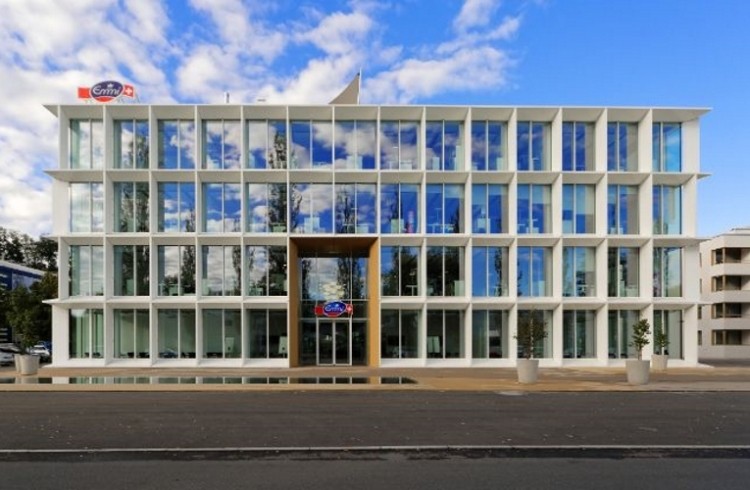Emmi and Nestlé launching climate protection project with milk suppliers

The cross-sector initiative has the goal of gaining scientifically based insights together, in order to make the Swiss dairy industry more competitive and sustainable with respect to climate protection and resource efficiency.
With a mix of measures, the aim is to reduce greenhouse gas emissions from agricultural milk production by 20% on average. The initiative is supported by the Federal Office for Agriculture (FOAG) and will include around 300 agricultural pilot operations. The School of Agricultural, Forest and Food Sciences at Bern University of Applied Sciences (HAFL) and ETH Zurich will be supporting the project as scientific partners.
KlimaStaR Milk aims to create a common basis for a more sustainable, resource-saving and land-appropriate Swiss dairy industry. Because the initiative aims to improve sustainability in the use of natural resources and its findings promise benefits and impact through the project, the project is being supported financially by the Federal Office for Agriculture (FOAG) as part of the Resource Programme for Agriculture.
By joining forces, the companies said they want to contribute towards further reducing the environmental footprint of milk and thus also of dairy products.
The project partners said to achieve the goal of reducing greenhouse gas emissions from milk production by 20%, four key points are being addressed: feed, herd management, energy, and farmyard manure. To measure progress, scientifically-based survey methods and specially developed analysis technologies will be used.
Interested producers can now find out more about the initiative and register to take part at klimastar-milch.ch. They receive a practical and farm-specific analysis of the carbon footprint for their milk, which can then be used to develop individual, land-appropriate emission reduction strategies. Dairy producers can choose what measures they want to take, and receive positive incentives for implementation via an impact-oriented bonus model.
The innovative initiative is intended to run for six years. From the results, those involved said they hope to gain insights to allow for implementation of targeted measures beyond the scope of the project and thus help to further reduce the greenhouse gas emissions of the Swiss dairy industry.
The KlimaStaR Milk project contributes towards the climate ambitions of both Emmi and Nestlé, and both aim to become climate-neutral by 2050.
Gabriele Schachermayr, assistant director of the FOAG, said, “With this project, solutions for a more climate-friendly dairy industry are to be tested in practice and developed further together with the partners involved in the value chain. The aim is to reduce greenhouse gas emissions in dairy production, and at the same time reduce land and food competition. We expect a very large increase in knowledge in this regard. This is important in order to achieve more sustainable, land-appropriate and productive agriculture.”
Marc Heim, Emmi executive vice president Switzerland, added, “Only by working together will we be able to launch effective climate protection solutions. As Switzerland’s leading milk processor, we are aware of our responsibility to operate our business in the most resource-efficient and the most socially and ecologically sustainable way possible. I am convinced that the partnership-based initiative will help us gain a better understanding of complex interrelationships and provide fact-based insights, so that together we can strengthen the tradition of a sustainably oriented Swiss dairy industry also for generations to come.”
Daniel Imhof, head of agricultural affairs at Nestlé Switzerland, said, “Climate protection can only be achieved by joining forces. We are therefore pleased to be able to pull our weight here together with Emmi and make a contribution towards sustainable Swiss dairy farming. Cow’s milk has been an important resource for us since the birth of Nestlé and remains indispensable in the manufacture of infant nutrition and other products at our factory in Konolfingen. We don’t want to replace our cows, but rather help to improve their environmental footprint.”
Thomas Grüter, president of the ZMP, added, “To reduce greenhouse gas emissions in agriculture, the entire value chain must play its part – from consumption to raw material production. Our milk is produced in and with nature – our dairy cows are part of it. It is therefore in our own fundamental interests to contribute to the climate targets. Milk production here is already grassland-based and land-appropriate. With KlimaStaR, we want to gain further scientifically sound knowledge on possible conflicting targets and for impactful measures to effectively align our milk production in a sustainable way.”
Rudolf Bigler, chairman of the board at aaremilch AG, concluded, “Since 2014, aaremilch AG has been strongly committed to climate protection and has done some pioneering work. We do not shy away from tackling complex issues since we are convinced that Swiss milk is a very sustainable and healthy food staple.”




